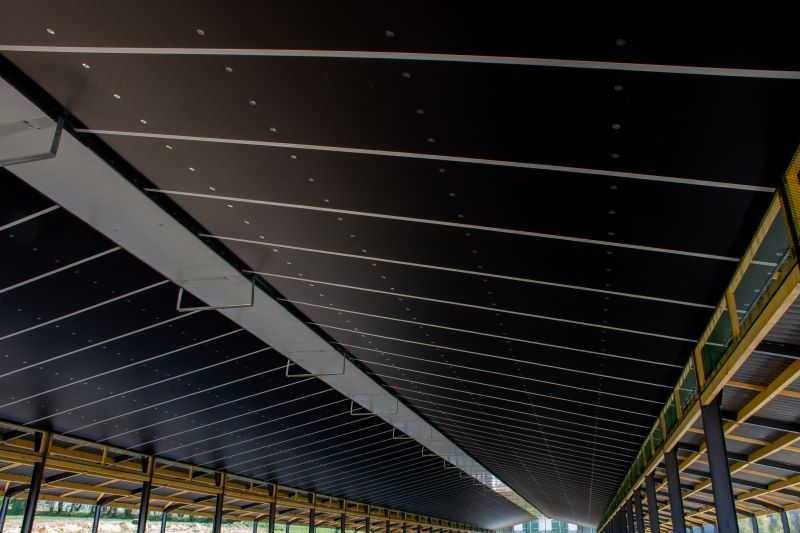Poultry and egg producers who are renovating or building new housing should consider using insulated ceiling boards with a dark face to reduce stress in the flock and improve the shed environment.
Insulated buildings are far more energy efficient, reducing electricity bills and providing a more even temperature without hotspots. This, in turn, benefits flock health and welfare, says Tom Verhaest, agricultural specialist at Recticel Insulation. Traditional forms of insulation can be tricky to install – but all-in-one Lumix panels are thin and light, reducing the weight of the roof construction and making them easy to clean.
In addition, unlike other insulation types, the panels have facings which are resistant to ammonia, which can destabilise standard insulation boards.
However, many insulation boards have a white reflective facing, which – while beneficial in many sheds – causes an unnatural glare in buildings lit by natural daylight, which can stress animals that see in a different spectrum to humans. Research has shown that different coloured lighting produces different reactions among chickens: Red lighting can make them more aggressive, while green light is calming. In addition, birds see the light produced from fluorescent bulbs as a flickering bar-code with dark stripes – LED lights are far better, says Mr Verhaest.
So when it comes to creating the perfect environment for your flock, providing an even temperature and kind light will go a long way to reducing stress and the resulting effects including feather pecking and gut upsets.
This is where the dark face of the Lumix boards comes into play. When installed on the ceiling of poultry houses which allow the ingress of natural light, it absorbs rather than reflects the light, preventing the unnatural glare caused by white-faced sheets. “This creates a more comfortable environment for the birds – and also deters birds and pests from nesting under the roof.”
Although the British Pig & Poultry Fair 2020 has been cancelled due to Covid-19, producers can still get advice from Recticel’s agricultural insulation experts, says Mr Verhaest. “If you want to optimise your next housing project and find out what high performing insulation can do for animal welfare and energy efficiencies, we can help.”





